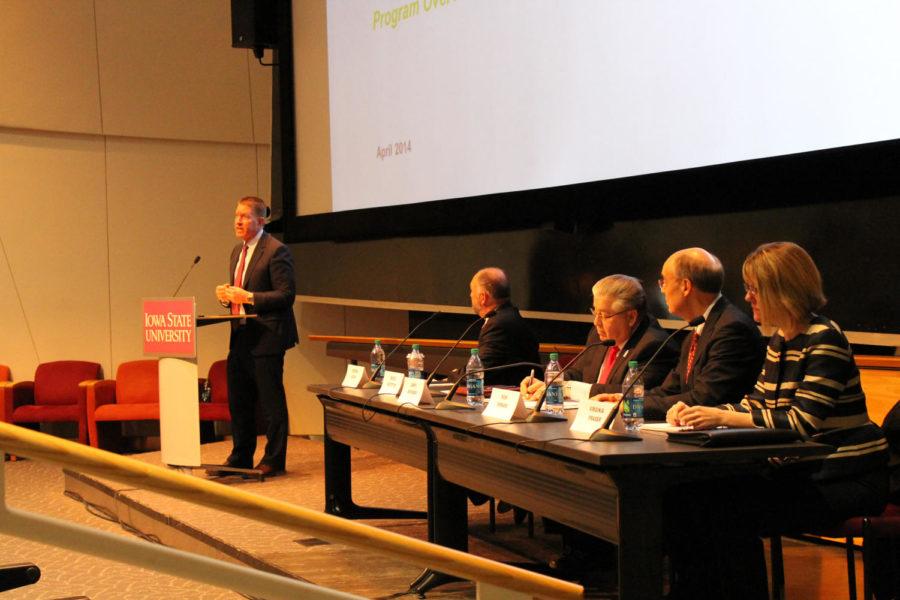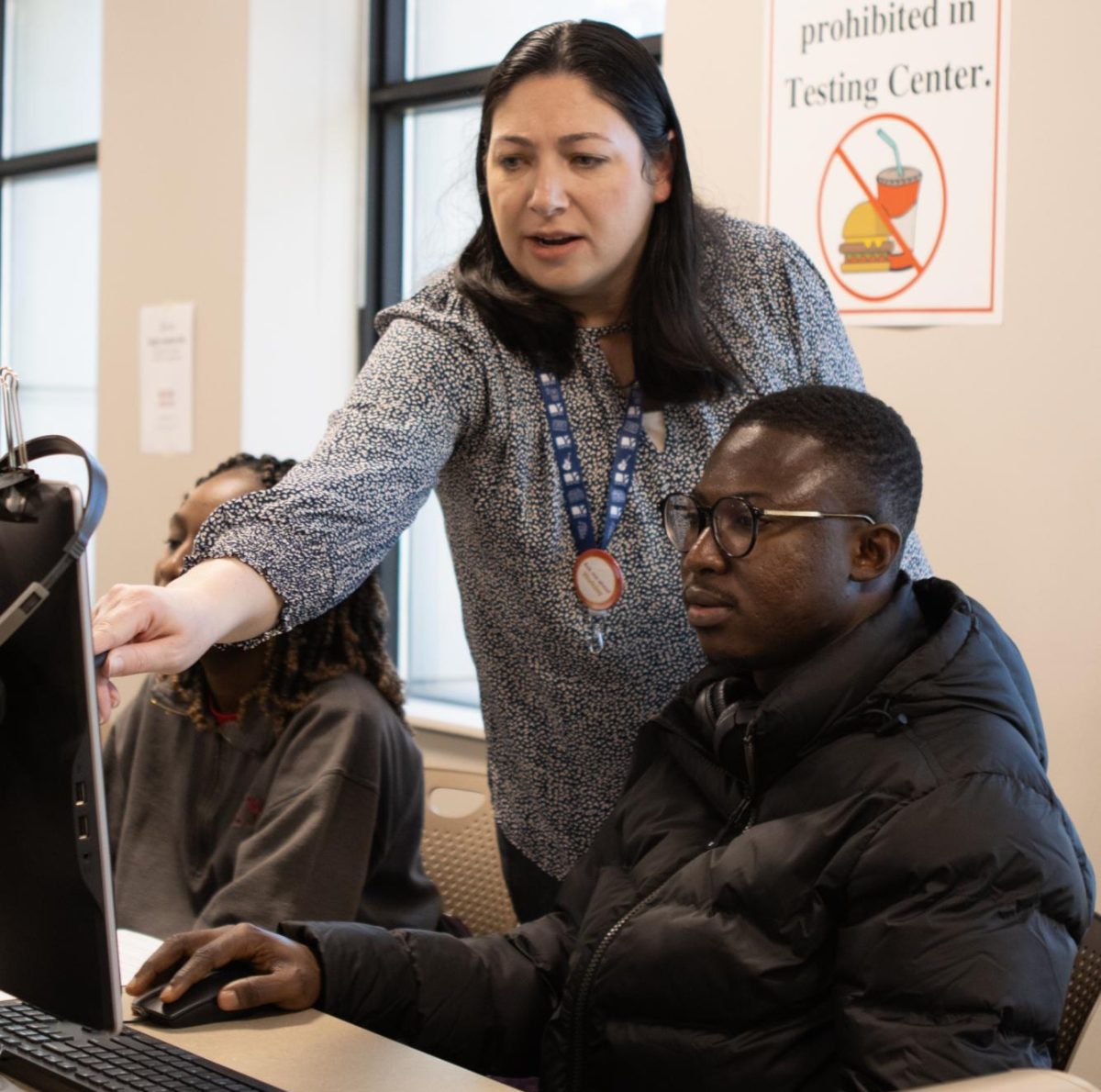Editorial: Efficiency study needed to improve education
Bruce Rastetter, president of the Board of Regents, addresses the audience at the efficiency forum on April 1.
April 2, 2014
The Iowa Board of Regents is hoping to set the regent universities on an innovative and efficient path in order to stay proactive in improving higher education within the state. In order to find out what path that will be, they have commissioned a consulting company, Deloitte, to conduct an efficiency review of the University of Iowa, Iowa State University and the University of Northern Iowa.
That efficiency review, which will look at all aspects of the universities, is intended to generate recommendations for the regents as to how they can save money for Iowa taxpayers and Iowa students. It should be noted that, according to the regents, any savings will be immediately reinvested back in the regent universities.
The first phase of this months long process has already begun, with Deloitte beginning their review at the University of Iowa last week. Yesterday was the beginning for us here at Iowa State, with an open forum showcasing speakers such as ISU President Steven Leath, Board of Regents President Bruce Rastetter and representatives from Deloitte.
At the forum, a video of which is available for viewing in full online at http://web.iastate.edu/efficiency/forum/apr1.php, a short presentation was made about the upcoming review, and public questions were answered by the speakers. Public input appears to be a priority for the regents in this undertaking, as they repeatedly stressed the importance of receiving feedback and suggestions from the various communities with interests in Iowa’s universities. Specific to Iowa State, an email account has been set up to receive public input and ideas at [email protected].
The endeavor to make the regent universities more efficient, to lower tuition prices, student debt and to find new ways to be innovative in education is a valid goal set by the regents. Rastetter explained in an exclusive interview with the Iowa State Daily that he hopes to make such efficiency reviews more frequent in the future, as the last review took place in the 1980s, as a way to constantly work toward bettering our education system. However, the only way that such a review is going to be successful is if all parties involved become active and honest, in the open dialogue. This means staff, faculty and students should wholly embrace the opportunity to share their thoughts and feelings on where our universities are headed and what is important to them. It also means that the regents must remain true to their mission to keep the review transparent and listen with the full intent to take all suggestions and thoughts seriously.
Students should care about what is going to happen in the future years to both their university and their specific majors. Nothing is off the table, there is always room to change programs and, possibly, get rid of them completely. Being students that are paying for an education in a specific major we should be aware of what changes are going to be made to our major and university and should want to add our input about it.
The open forum April 1 took place during the middle of the day, a time that can be difficult for most students to attend with their class schedules. Rastetter seemed open to moving the meetings to an evening time, or discussing other methods for students to get involved with the discussion. If the regents work to accommodate students schedules for meetings, those of us in the Iowa State community should use such time to contribute to the dialogue.
Over the next two days, the Iowa State Daily Editorial Board will break down issues and topics that have so far been discussed concerning the efficiency review. Due to the importance of the efficiency review, and the potential impacts it could have on the Iowa State community, we are encouraging everyone to get involved with the discussion early. This could be through a letter to the editor, visiting the online websites directed toward the review or emailing their suggestions. It’s your community, don’t be afraid to have a voice in it’s future.

















